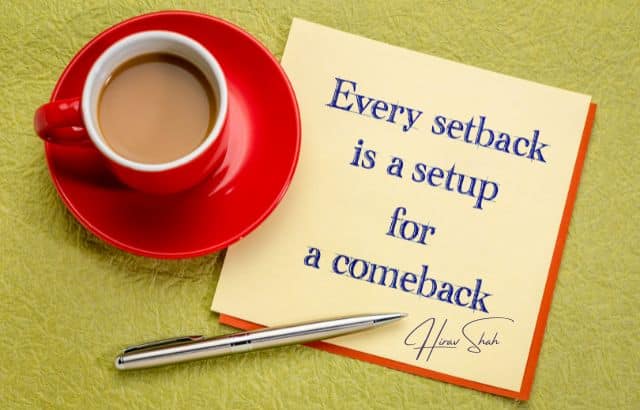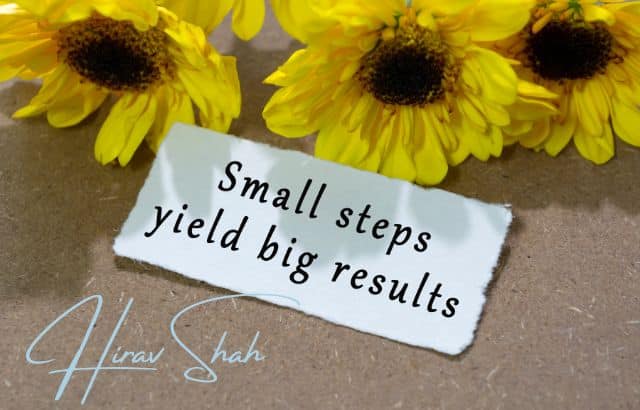Receiving criticism can be uncomfortable and challenging, but it is a necessary part of personal growth. Learning to accept criticism with an open mind and integrating it into our lives is an art that requires patience, self-reflection, and a willingness to improve.
In this article, we will explore the benefits of accepting and learning from criticism and how it can propel us towards personal growth and success.
Table of Contents
Understanding the importance of criticism
- Criticism can come in various forms, whether it is constructive feedback from a mentor, reviews of our work, or even unsolicited opinions from others.
- Rather than dismiss criticism or become defensive, embracing it can provide valuable insights and opportunities for learning and development.
- It allows us to step outside of our comfort zones, identify areas for improvement, and ultimately enhance our skills and abilities.
- Accepting and learning from criticism is not a sign of weakness, but rather a sign of strength and maturity.
- It shows that we are open to growth and willing to acknowledge our imperfections.
- By accepting criticism, we demonstrate a willingness to learn and improve ourselves.
- It is important to remember that not all criticism is valid or helpful. Learning to differentiate between constructive criticism and destructive criticism is essential.
- Constructive criticism aims to provide feedback that is focused on helping us improve.
- On the other hand, destructive criticism is often driven by personal attacks or negativity.
- By understanding the intent behind the criticism, we can better assess its value and determine whether it is worth considering.
Types of criticism and how to differentiate constructive criticism from destructive criticism
By opening ourselves up to criticism, we gain a fresh perspective on our strengths and weaknesses. It helps us identify blind spots that we may not have been aware of and encourages us to deepen our self-awareness. Accepting and learning from criticism also shows humility and a willingness to grow, which can earn the respect and trust of others.
When we accept criticism, we give ourselves the opportunity to learn from our mistakes and improve our skills. It allows us to make adjustments and course corrections that can lead to better outcomes in the future. By embracing criticism as a tool for growth, we become more resilient and adaptable, able to handle challenges and setbacks with grace and determination.
Furthermore, accepting and learning from criticism helps us develop stronger relationships and connections with others. When we show that we are open to feedback and willing to listen, we create an environment of trust and collaboration. This fosters a culture of continuous learning and improvement, benefiting not only ourselves but also those around us.
The benefits of accepting and learning from criticism
- Despite the benefits of accepting criticism, many of us still struggle with fear and resistance when faced with feedback.
- It is natural to feel defensive or threatened when our work or abilities are questioned.
- However, by understanding and acknowledging these emotions, we can begin to overcome them.
- One way to overcome the fear of criticism is to reframe it as an opportunity for growth rather than a personal attack.
- By shifting our mindset, we can approach criticism with curiosity and a desire to learn.
- It is also helpful to remind ourselves that everyone makes mistakes and that criticism is a normal part of the learning process.
- It is important to separate our self-worth from the criticism we receive. Criticism is not a reflection of our value as individuals, but rather an opportunity to improve.
- By understanding this distinction, we can detach ourselves from the emotional impact of criticism and focus on the valuable insights it offers.
Overcoming the fear and resistance to criticism
To truly embrace criticism, it is necessary to cultivate a growth mindset. A growth mindset is the belief that our abilities and intelligence can be developed through dedication and hard work. With a growth mindset, we see challenges and criticism as opportunities for growth and improvement.
One way to develop a growth mindset is to embrace a love for learning. By approaching life with an attitude of curiosity and a desire to constantly learn and improve, we become more open to feedback and criticism. This mindset allows us to see setbacks as temporary obstacles that can be overcome with effort and perseverance.
Another key aspect of a growth mindset is reframing failure as a stepping stone to success. By understanding that failure is a natural part of the learning process, we can view criticism as a valuable tool for growth. Embracing failure as a learning opportunity allows us to bounce back stronger and more resilient.
Developing a growth mindset to embrace criticism
When receiving criticism, it is important to approach it with an open mind and a willingness to listen. Here are some effective strategies for receiving and processing criticism:
- Active Listening: When receiving criticism, give the speaker your full attention and listen without interrupting. Show that you value their perspective by maintaining eye contact and nodding to acknowledge their points.
- Ask for Clarification: If you don’t fully understand the criticism, ask for clarification. This shows that you are engaged and genuinely interested in understanding their perspective.
- Take Notes: Taking notes during the conversation can help you remember the key points and reflect on them later. It also shows that you are taking the criticism seriously and willing to consider it.
- Reflect and Evaluate: After receiving criticism, take some time to reflect on what was said. Evaluate the validity of the feedback and consider how it aligns with your goals and values. This will help you determine how to integrate the criticism into your personal growth journey.
Effective strategies for receiving and processing criticism
Accepting and learning from criticism is just the first step. To truly benefit from feedback, it is essential to implement it in a meaningful way. Here are some strategies for implementing feedback:
- Identify Actionable Steps: Break down the feedback into actionable steps that you can take to improve. Create a plan and set specific goals that will help you address the areas for improvement.
- Seek Support and Accountability: Share your goals and action plan with a trusted friend, mentor, or coach. Having someone to support and hold you accountable can greatly increase your chances of success.
- Practice and Iterate: Put the feedback into practice and be open to making mistakes along the way. Remember that personal growth is a journey, and it takes time and effort to see results. Iterate and refine your approach as you learn and grow.
- Celebrate Progress: Acknowledge and celebrate your progress along the way. Recognize the small wins and milestones as you work towards your goals. This will help you stay motivated and inspired to continue on your path of personal growth.
Implementing feedback for personal growth and improvement
Self-awareness is a key component of accepting and learning from criticism. It is the ability to objectively observe and understand our thoughts, emotions, and behaviors. Cultivating self-awareness allows us to better understand how we react to criticism and how it impacts our personal growth journey.
One way to cultivate self-awareness is through self-reflection. Take time to reflect on your own strengths, weaknesses, and areas for improvement. Consider how the criticism you receive aligns with your self-perception and identify any patterns or recurring themes.
Practicing mindfulness can also help cultivate self-awareness. By being fully present in the moment, we can observe our thoughts and emotions without judgment. This allows us to gain a deeper understanding of our reactions to criticism and make conscious choices on how to respond.
Cultivating self-awareness and self-reflection in the face of criticism
In addition to accepting criticism, it is important to seek out diverse perspectives and opinions. Surrounding ourselves with people who have different backgrounds, experiences, and viewpoints can enrich our understanding and challenge our own biases.
Actively seek feedback from a variety of sources, including mentors, colleagues, friends, and even online communities. By gathering different perspectives, we can gain a well-rounded understanding of our strengths and weaknesses. This can help us identify blind spots and uncover opportunities for growth that we may have overlooked.
Seeking out diverse perspectives and opinions for a well-rounded understanding
In conclusion, accepting and learning from criticism is not an easy task, but it is an essential one for personal growth and success. Embracing criticism with an open mind allows us to improve ourselves, learn from our mistakes, and ultimately become better versions of ourselves.
By understanding the importance of criticism, differentiating between constructive and destructive criticism, and developing a growth mindset, we can overcome the fear and resistance to criticism. Effective strategies for receiving and processing criticism, as well as implementing feedback for personal growth, are also crucial.
Cultivating self-awareness, seeking out diverse perspectives, and engaging in self-reflection are key practices to embrace criticism as a catalyst for personal growth and success. So, let’s embark on this journey of personal growth, accept criticism with grace, and use it to propel ourselves towards a brighter and more successful future.
Conclusion- Embracing criticism as a catalyst for personal growth and success.
- Criticism can come in various forms, whether it is constructive feedback from a mentor, reviews of our work, or even unsolicited opinions from others.
- Rather than dismiss criticism or become defensive, embracing it can provide valuable insights and opportunities for learning and development.
- It allows us to step outside of our comfort zones, identify areas for improvement, and ultimately enhance our skills and abilities.
- By opening ourselves up to criticism, we gain a fresh perspective on our strengths and weaknesses.
- It helps us identify blind spots that we may not have been aware of and encourages us to deepen our self-awareness.
- Accepting and learning from criticism also shows humility and a willingness to grow, which can earn the respect and trust of others.
In conclusion, accepting and learning from criticism is not an easy task, but it is an essential one for personal growth and success. Embracing criticism with an open mind allows us to improve ourselves, learn from our mistakes, and ultimately become better versions of ourselves. So, let’s dive into the art of accepting and learning from criticism and embark on a journey of personal growth.
































